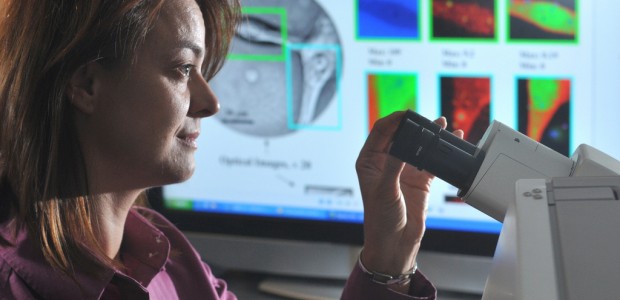Oncology: its basic definition is “the study of cancer.” But there’s so much more to it.
When you enter the world of cancer, you face more terminology than you imagined possible. It’s not a simple chest cold we’re discussing anymore! Let’s navigate some of the familiar phrases in oncology so we can sort out the medical jargon and make it easier to understand your situation.
First of all, what is cancer, anyway? Simply put, cancer is a disease where cells display uncontrolled growth. A group of uncontrolled cells is generally referred to as a tumor. Tumors are not always cancerous, but they are defined by an abnormal mass of tissue that occurs when cells either divide when they should not, or do not die when they should. Tumor cells are generally biopsied (tested in a medical environment) to determine whether or not the cells are, in fact, cancerous. “Malignant” is another word for cancerous cells.
Next phrase: cancer screening. Screening implies taking specific tests to check for preliminary signs of a disease, such as cancer, before it occurs. One such example would be a mammogram, which is considered a screening for breast cancer. Screening tests are needed when the possibility exists for a disease but there are no signs or symptoms in place.
When you do have signs and symptoms which point to the possibility of cancer, the next step is to perform tests to confirm the cancer diagnosis. Oops, another word to navigate: diagnosis. The word diagnosis means to identify a disease based on your signs and symptoms. It’s not an easy task to diagnose cancer, but the diagnosis is necessary since it is the first helpful step towards treating the cancer.
Another common phrase for the “treatment” of cancer, is Therapy. There are many types of therapy for cancer. Some therapies consist of medical procedures (such as radiation therapy) and some therapies involve the use of medicines. The medicines work in a variety of ways in your body. In some cases, your therapy might involve specific medicines that kill cancer cells directly (we usually think of the word chemotherapy), but there are also other types of therapies. These other therapies are all medicines which differ in the way they work in the body; some affect hormones directly by adding to them, blocking or removing them (hormonal therapy), some “target” specific cancer cells to identify and attack them (targeted therapy), and some work with the body’s chemistry to boost the immune system to fight cancer (biological therapy).
The suggested treatment for you is recommended by your team of oncology professionals. This team is coordinated by your medical oncologist, who is the main health care provider for your cancer. In addition, you will probably have an oncology nurse and oncology therapists, who administer the cancer medicines and/or treatment. If surgery is suggested, you will work with a surgical oncologist as well.
The best approach to dealing with cancer terminology is to ask a lot of questions; the more you understand your diagnosis and therapy, the better the medical professionals can provide care to treat and cure the cancer. You are your own best advocate!
